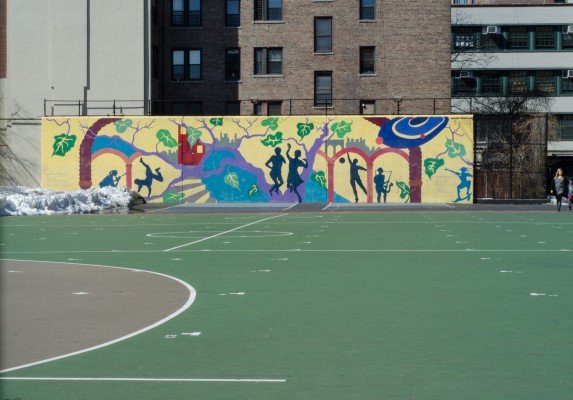We Need To Talk About Microaggressions
March 11, 2015
Kyle Spencer’s New York Times article, “At New York Private Schools, Challenging White Privilege From the Inside”, discussed attempts by pricey New York City private schools to address diversity talks in a new way. Friends Seminary by Union Square, the Spence and Dalton Schools on the Upper East Side, and Brooklyn Friends: all of these are K-12 independent schools with tuitions comparable to some colleges (Spence, for instance, is $43,000 per year for K-12), have begun addressing white privilege in their discussions on diversity. The rhetoric around “diversity” in private schools – especially those known for having a predominantly white, upper-class student body – traditionally relied on things like “International Day,” or celebrations of other cultures’ holidays. Normally, whiteness is not dissected.
In the wake of a growing dialogue on race, microaggressions and language, educational institutions are questioning their role in these conversations. Much of recent activism has been via young people, and these K-12 schools are attempting to thoughtfully question how they’ve discussed race and diversity in the past, in hopes that their students will be better equipped to discuss it in an increasingly conscious world. Whether one likes it or not – as any Fordham College at Lincoln Center (FCLC) student can tell you – these conversations are a reality.
Full disclosure: I went to a Friends school, or a private religiously-affiliated school founded by Quakers (like the aforementioned Friends Seminary or Brooklyn Friends). Without getting into a theological lecture, Quakerism is a Christian denomination which differs from other forms of Christianity in its focus on pacifism, simplicity and social justice. Fun fact: Quakers were some of the first abolitionists in the country. If I had to make a comparison, Quaker values remind me of some Jesuit values; a focus on the community, fighting injustice and a strident role in political activism. There’s a lot of overlap.
However, at my Friends school, despite our small class sizes and our declared school passion for justice and equality, microaggressions were rampant. As a white woman of privilege, I was rarely the target, besides in instances of gender discrimination (which were not uncommon). My female friends of color received the brunt of these microaggressions, as coded insults flew across the halls. Whether in the case of racial or gender-related microaggression, the fault always lay with the offended; the offender would never take responsibility for the effect of their words. Our predominantly white institution was either unable to or uninterested in opening a conversation about these offenses and the importance of understanding why our linguistic choices mattered.
In my senior year, I took part in an initiative to address these microaggressions within our high school through our Diversity Club. We believed that the tenets of our education, of equality and support for others and a willingness to address injustice and work through it, required us to address these issues. Though we were met with backlash and discomfort, I hope these conversations at least opened some minds. For me, these conversations – which happened more rarely than I liked at the time – were soon to become a day-to-day occurrence for me at FCLC, where I became a Social Justice Leader for the Dorothy Day Center for Social Justice.
So why did I go on such a tangent about high school and Quakerism? Because I feel like Bill Murray in Groundhog Day, stuck in a loop: this same conversation is happening for me all over again. And I wonder, as conversations revolving around race cannot be forced nationwide into all schools, is it Fordham’s responsibility as a Jesuit institution to at least consider what would happen if we all had to address white privilege?
The Winter Ball theme, an insensitive Public Safety alert: It’s clear that many of us who care about issues of injustice and who work to fight them are exhausted, which makes it even more exasperating when microaggressions occur within the FCLC community. We’re not seeking perfection, we just want effort on both sides, to gain the ability to speak to one another honestly.












